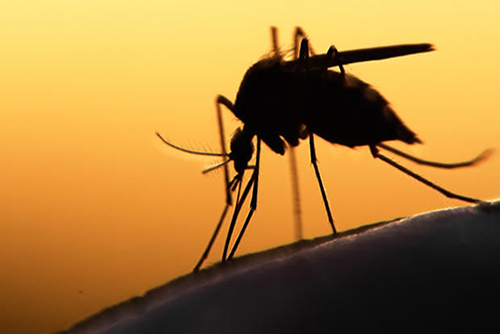Zika
At a glance:
Transmission:
- Bites from an infected mosquito
- Possibly: Sexually transmitted through unprotected sex where the male is or was infected
- From infected mother to unborn child
Symptoms: Fever, Rash, Pain and/or swelling in joints, conjunctivitis, lethargy, headache, abdominal pain, constipation, itchy skin, ulceration of the mucus membranes
Treatment: No treatment at this time
Preventative: No specific preventative at this time, stopping mosquito bites is best preventative.
Most likely to become infected:
- People bitten by infected mosquitos
- People having unprotected sex with a male who was or is infected
- Unborn children of infected mothers
Zika is a type of Flavivirus, a group of viruses that are carried and transmitted by vectors (mosquito, tick, etc) and can potentially cause serious health problems. It has been around for a long time, however general knowledge of this virus has increased recently due to the media coverage of the epidemics in South America and Asia. Zika is a cousin of Dengue fever, Yellow Fever, West Nile virus and other viruses of the same family group and has very similar symptoms.
Typically Zika is transmitted through the bites of an infected Aedes mosquito; however there have been probable cases of the virus being transmitted through sexual contact (male to female). The only incidences of Zika being sexually transmitted were where males who had been exposed to Zika had unprotected sex, there is currently no information about it being transmitted from a female during unprotected sex. In pregnant women, Zika can be transferred from the mother to the child and this has been known to cause birth defects; there is no evidence, however, of transmission through breast feeding.
Typical symptoms of Zika include: Fever, headache, lethargy, cutaneous macupapular rash (flat, reddened area covered with small bumps), conjunctivitis, smaller joint pain and possible swelling in the joints. Less common symptoms include: Abdominal pain, constipation, diarrhoea, ulceration of the mucus membranes and severely itchy skin.
There is currently no preventative for Zika or treatment other than symptom management (i.e. medication to bring down fevers or treat nausea). The best way to reduce your chances of picking up Zika is to be extra vigilant in stopping mosquito bites in known Zika areas and to practice safe sex with persons who have been or may have potentially been infected. Outlined below are some good tips for reducing mosquito bites:
- Wear long, lightly coloured clothing to cover as much skin as possible
- Re-apply a tropical strength insect repellent that contains DEET repeatedly throughout the day, especially following swimming or excessive sweating
- Limit your time outside during high mosquito incidences, i.e. dawn and duck
- Ensure you are protected whilst you sleep by having an air-conditioned room (keeping the air-conditioning on all night) or by sleeping under an adequate mosquito net
With regards to the possibility of sexually transmitting the infection, the Australian Department of Health has recommended the following:
For non-pregnant women:
- Hold off on becoming pregnant for at least 8 weeks following their last day in a Zika affected country
For pregnant women:
- Do not have unprotected sex with a partner who has travelled to a country affected by Zika for the entirety of the pregnancy; even if the partner has no symptoms of Zika
For everyone:
- Do not have unprotected sex with a partner who has been to a Zika affected country for at least 8 weeks following their last day in that country, even if they have no shown any symptoms of infection
- Do not have unprotected sex with a partner who had confirmed Zika for 6 months following their recovery
There has recently been a very public correlation between mothers infected with Zika and children born with abnormalities, although it is not yet known exactly how Zika affects unborn children but it is believed that Zika can affect an unborn child at any stage of its development. Below is a list of possible abnormalities that may affect the unborn child of a mother who has Zika:
- Microcephaly: An abnormal smallness of the head associated with incomplete brain development
- Craniofacial disproportion: Disproportional growth of the cranial bones (scull) leading to a deformity of the head where part of the head is larger than another part
- Spasticity: Continuously contracting muscles leading to stiffness or tightness that can affect the normal movement, speech and gait. Typically caused by damage to the areas of the brain and spinal cord that control involuntary movement
- Seizures: Characterised convulsions that are related to abnormal electrical activity in the brain
- Brainstem dysfunction: dysfunction of the brainstem can lead to vison problems, eye problems (structural), changes in senses, muscle weakness, hearing problems, swallowing and speech problems, dizziness, change in voice and physical co-ordination problems
- Ocular abnormalities: Various visual issues and the possibility of blindness in one or both eyes
- Cardiac and Digestive problems: at this time only suggested that can be affected (from unpublished data given to the World Health Organisation)
- Abnormalities in neuroimaging (imagery of the brain and nervous system):
- Calcification: Accumulation of calcium salts leading to hardening of tissue
- Cortical disorders: abnormal structure of the cerebral cortex
- Ventriculomegaly: Dilation of the lateral ventricles that carry cerebrospinal fluid
For more information, check out the following websites :
http://www.health.gov.au/internet/main/publishing.nsf/Content/ohp-zika-health-practitioners.htm

